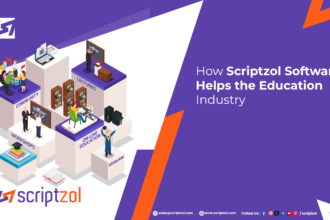In today’s competitive business environment, efficient procurement is more than just purchasing- t’s a strategic function that can drive value across an entire organization. Whether you’re a small business scaling operations or a large enterprise optimizing supplier relationships, one key figure can make a significant impact: the procurement contractor.
But who are these professionals, and why are they so vital to the procurement process? Let’s explore how procurement contractors contribute to smarter sourcing, leaner operations, and better business outcomes.
What is a Procurement Contractor?
A procurement contractor is a professional or firm hired by organizations to manage some or all aspects of the procurement process. This could involve sourcing goods and services, negotiating supplier agreements, managing supplier performance, and ensuring compliance with internal policies and external regulations.
Unlike in-house procurement teams, procurement contractors often bring specialized skills, market insights, and cross-industry experience. They can be engaged for short-term projects, long-term outsourcing arrangements, or to fill gaps during times of transition.
Why Companies Choose to Work with Procurement Contractors
Businesses today face a multitude of procurement-related challenges: rising costs, supply chain disruptions, regulatory compliance, and evolving sustainability expectations. Hiring a procurement contractor can offer several advantages:
1. Cost Reduction and Improved Spend Management
Contractors are often brought in with the primary goal of reducing costs. By leveraging industry benchmarks, supplier networks, and negotiation tactics, they help organizations get the best value for money- without compromising quality.
2. Access to Expertise
Procurement contractors usually have deep domain knowledge and have worked across various industries. This exposure allows them to provide unique insights, innovative sourcing strategies, and risk mitigation practices that internal teams may not be familiar with.
3. Faster Results with Fewer Internal Resources
When timelines are tight and internal capacity is limited, hiring a procurement contractor can accelerate project timelines. They can hit the ground running with minimal onboarding, ensuring efficiency from day one.
4. Technology and Process Optimization
Modern procurement relies on digital tools- eSourcing platforms, contract management software, and analytics dashboards. A procurement contractor is often familiar with these technologies and can assist with implementation, training, or process redesign.
Key Responsibilities of a Procurement Contractor
Depending on the scope of the engagement, procurement contractors may take on various roles. Common responsibilities include:
Supplier Sourcing and Evaluation: Identifying, assessing, and selecting suppliers based on criteria like price, quality, delivery time, and compliance.
Contract Negotiation: Managing the negotiation of terms and conditions to protect the organization’s interests while building strong supplier relationships.
Category Management: Organizing procurement into categories (e.g., IT, facilities, raw materials) and developing strategies for each.
Cost Analysis and Benchmarking: Conducting detailed spend analysis to identify savings opportunities.
Compliance Monitoring: Ensuring procurement activities meet legal and ethical standards, including ESG (Environmental, Social, Governance) requirements.
Industries That Benefit from Procurement Contractors
While procurement contractors are used across all industries, some sectors rely more heavily on them due to complex supply needs and tight margins:
Healthcare: For managing pharmaceutical and medical equipment sourcing.
Construction: Where each project involves significant sourcing and subcontracting.
Manufacturing: To ensure raw material availability and competitive pricing.
Retail: For managing large volumes of seasonal and vendor-managed inventory.
When to Hire a Procurement Contractor
Bringing in a procurement contractor isn’t always necessary- but it can be game-changing in the following scenarios:
- Your organization is scaling quickly and internal procurement can’t keep up.
- You’re launching a new product and need short-term sourcing expertise.
- You want to reduce operational costs but lack internal strategic sourcing knowledge.
- You need a neutral, third-party evaluation of your current procurement processes.
- You’re undergoing digital transformation and need guidance on procurement technology.
What to Look for in a Procurement Contractor
Not all contractors are created equal. When choosing a procurement partner, consider the following:
Experience: Have they worked in your industry or on similar projects?
Certifications: Do they have credentials like CIPS (Chartered Institute of Procurement & Supply) or equivalent?
References: Can they demonstrate measurable results with past clients?
Communication Skills: Can they work well with both suppliers and internal stakeholders?
Technology Fluency: Are they comfortable with your systems or capable of recommending better alternatives?
Final Thoughts
Procurement contractors are a vital part of the modern supply chain. Whether driving down costs, streamlining supplier relationships, or digitizing procurement processes, their role is increasingly strategic. Businesses that leverage external expertise can gain a competitive edge, especially in complex or evolving markets.
Working with a procurement contractor allows companies to remain flexible while gaining access to high-level expertise and best practices. The result? More value, less waste, and smarter decisions throughout the sourcing lifecycle.
For organizations seeking to optimise their procurement strategy, working with experienced professionals can be transformative. Inprova is proud to support businesses across sectors with expert procurement solutions that drive measurable results.




